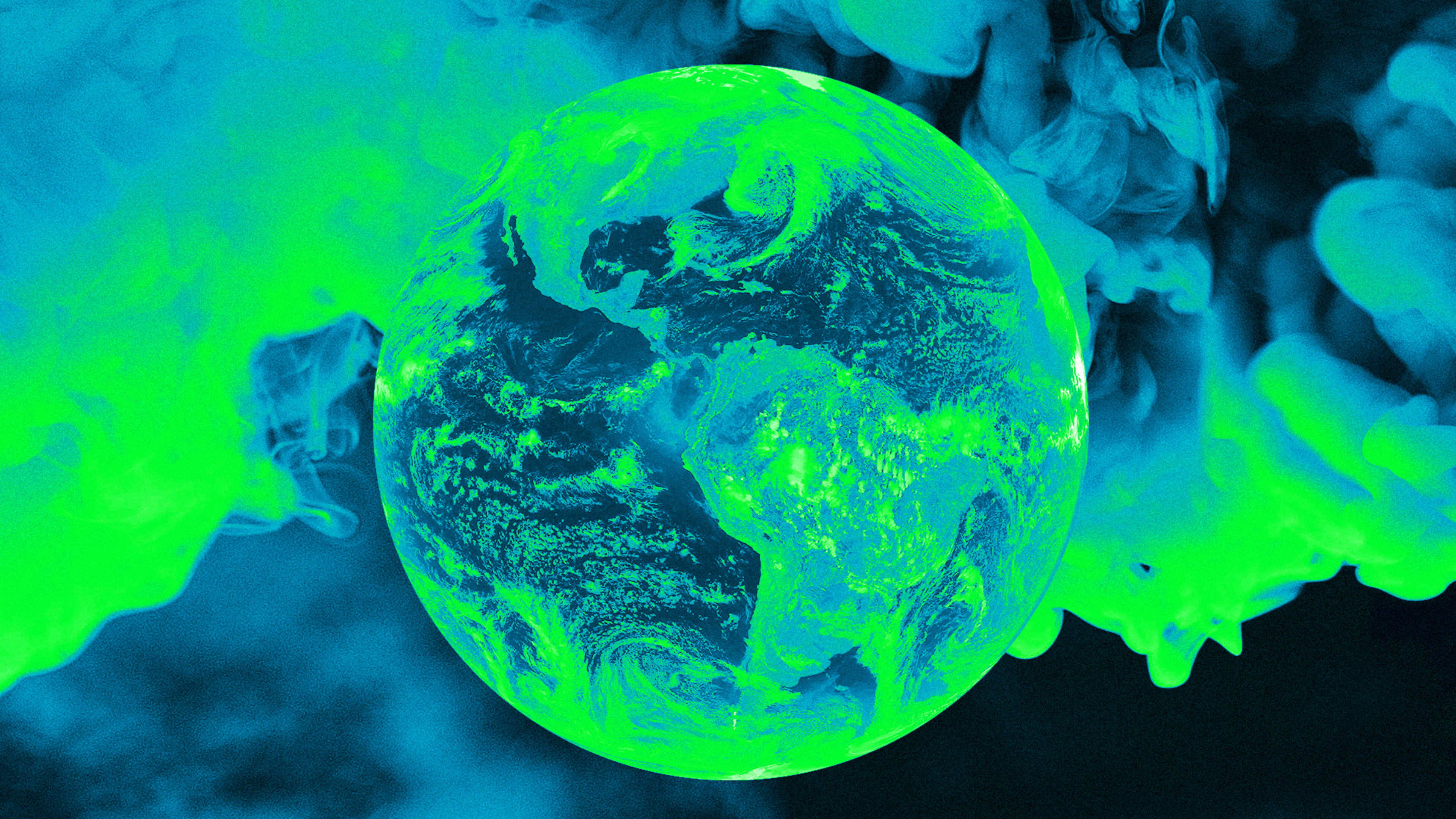In the August 5 issue of the New York Times Magazine, reporter Nathaniel Rich spells out, in just shy of 30,000 words, how in the decade spanning 1979 to 1989, we came very close to halting climate change in its tracks, only we didn’t. Rich’s in-depth reporting links together the earliest understandings of and reports on climate change–as early as 1978, we knew that a hike in global temperatures by 2 degrees Celsius would wreck havoc on the planet—with the political atmosphere at the time. The consensus, in those years, was that climate change was a collective failure, and one for which every country and every leader should assume collective responsibility.
In the piece, called “Losing Earth,” Rich tracks the work of the lobbyist Rafe Pomerance and climate scientist James Hansen as they worked to convince both politicians and the American public of the consequences of unfettered fossil fuel burning. They were certainly effective in raising awareness; as early as 1979, Exxon was launching its own research into carbon emissions to better understand how much blame it would shoulder, because the company recognized that, at that time, it was still conceivable that it might end up in hot water if government regulations were authorized. “There was a formal consensus around the nature of the crisis,” Rich writes. That consensus led to meetings among global leaders in Geneva, Tokyo, and the Netherlands, while Pomerance and Hansen continued their work on the ground in the U.S.

In the days since the piece appeared online on August 1, a number of scientists and journalists have taken issue with Rich’s analysis of the events that lead to our current place on the brink of disaster. Is it right to blame us–the collective royal “we” that Rich deploys throughout the piece–while executives from big oil and coal lurked in the background of nearly all the policy meetings Rich documents? Was it true that there was truly no opposition, and that “we” squandered a golden opportunity at the planet’s sunset? Among the critics, the consensus is no–and that forces, mainly economic ones, outside of our collective will have landed us where we are today. Let’s take a look at some of the responses.

Naomi Klein in the Intercept
Capitalism, not “human nature,” is what killed our momentum on climate change, Klein writes. In her own reporting on this period in time, Klein came to a similar conclusion as Rich did: “It really did seem like a profound shift was within grasp–and then, tragically, it all slipped away, with the U.S. walking out of international negotiations and the rest of the world settling for nonbinding agreements that relied on dodgy “market mechanisms” like carbon trading and offsets. It’s very worth asking the question that Rich does, which is: What happened?
But ultimately, Klein takes issue with Rich’s framing of the 1980s as a decade that offered up conditions that “could not have been more favorable” to taking action on curbing emissions and slowing climate change. This could not be more incorrect, Klein writes.
“On the contrary, one could scarcely imagine a more inopportune moment in human evolution for our species to come face to face with the hard truth that the conveniences of modern consumer capitalism were steadily eroding the habitability of the planet. Why? Because the late ’80s was the absolute zenith of the neoliberal crusade, a moment of peak ideological ascendency for the economic and social project that deliberately set out to vilify collective action in the name of liberating ‘free markets’ in every aspect of life,” Klein writes. “Just as governments were getting together to get serious about reining in the fossil fuel sector, the global neoliberal revolution went supernova, and that project of economic and social re-engineering clashed with the imperatives of both climate science and corporate regulation at every turn.” The failure to contextualize the happenings Rich documents amid these trends, Klein writes, “represents an unfathomably large blind spot in Rich’s piece.”

Kate Aronoff in the Nation
On the underrepresentation of the role of capitalism and the fossil fuel industry in Rich’s piece, Aronoff and Klein are in accord; Aronoff points out that just by looking at the data around the rise in corporate PACs in the decade–from 89 in 1974 to 1,467 in 1982, you can see the growth of business influence in politics, and understand how those executives from Exxon, analyzing the data to understand how much blame they might have to shoulder, would do anything in their power to lobby the government to keep their operations afloat.
But Aronoff also delves into the important global context that Rich’s piece elides. “Some countries contribute more to climate change than others,” Aronoff writes. “Polluters tend to cluster in the Global North. Climate impacts, meanwhile, have tended to batter the Global South most brutally with droughts and floods and extreme heat.” (Aronoff gives credit to the Times for documenting this reality in the photos accompanying Rich’s piece. She spoke with Fenton Lutunatabua, Pacific regional coordinator for 350.org, who told her that Rich’s piece read as an attempt to spread blame around the globe, among its people, when ultimately just 100 companies have accounted for 71% of global emissions since 1988. “In Fiji, we have no fossil fuel extraction,” Lutunatabua told Aronoff, “yet our communities and our lands bear the cost of this industry’s greed.”
The extractive consequences of climate change have made life so difficult for people of nations like Fiji, and indeed, lower-income people in more developed parts of the world like the U.S., who are most vulnerable to the immediate consequences of global warming and pollution, that the need for action in the long term can be difficult to see, Aronoff writes. “Put differently: Systemic social and economic inequalities contribute to the problem, because they make it virtually impossible for most people to care—and organize—around forces not affecting them in the immediate present.”

Alexander C. Kaufman in the Huffington Post
Kaufman puts a finer point on those inequalities that Aronoff mentioned, and puts the blame for them squarely on neoliberalism, the deregulatory ethos of neoliberal economics–which through the time period Rich tracks and beyond, inflected politics on both the left and the right. Neoliberalism, Kaufman writes, “preaches prosperity through privatization and quasi-religious reverence for the wisdom of unfettered markets.”
The market, and the demand for the outputs of the coal and industries, certainly caused climate change. And Kaufman adds that the same market-worshipping ideology has stymied the transformative progress needed to correct it. “The United States has not passed any significant environmental legislation at the national level since the 1980s, instead relying on market incentives and consumer labeling to address issues ranging from greenhouse gas pollution, conservation, and toxic chemicals,” Kaufman writes, citing a 2016 paper from the Utah Law Review, which concluded that the neoliberal approach to addressing climate change puts an undue burden for consumers to correct the mistakes of the market–echoing Rich’s analysis, and ultimately tasking everyday people with a responsibility to large to meaningfully address.

Alyssa Battistoni in Jacobin
Delving even deeper into the human effects of neoliberalism, Battistoni reminds readers that the ideology also “systematically decimated the only force capable of holding capital in check–that is, the labor movement.” Throughout the Times piece, Rich refers again and again to “the people” as “a countervailing force to corporate power” and the entity who, ultimately, failed to secure climate-progressive policies.
But Battistoni writes shifting blame to “we the people” in the era of corporate power misses the point entirely about how the political ideology worked to effectively undermine the voice of individual people in the system. Rich’s insistence on human nature as the force that failed climate progress in the 1980s, she adds, ignores the fact that in that time period (and arguably, still now), the human perspective was so far subordinated to corporate power that focusing on its perceived failings misses the point.

Alex Steffen on Twitter
The longtime environmentalist and futurist makes the point that how Rich’s piece lands depends very much on the position of the reader. “I notice that reactions to ‘Losing Earth’ seem divided along a pretty straightforward line: Those who work in climate science, journalism, or advocacy–and those who don’t,” he wrote on Twitter. “Folks who don’t work on climate for a living seem more positive about the piece than those who do.”
This is because to people like Steffen, who have been in the world of environmental activism and journalism for decades, Rich’s piece goes wrong in “ways many of us who work on climate have seen again and again.” His mistake, Steffen writes, is minimizing the Republican opposition to progressive climate policy, even from the get-go. While Rich paints a picture of bipartisan cooperation and understanding around the needs of the planet, “it’s frankly bizarre to make the claim that the Republican party cannot be blamed, when for most of the ’80s, we had the Reagan administration–the most virulently anti-environmental gang to run the White House until Trump came along,” Steffen writes. “That there were still, then, Republicans with an environmental conscience in public life, and that there were still bipartisan efforts to act does not mean that the 1980s GOP as a whole was not opposed to action. That’s a rewriting of history, to dubious purpose.”
While Rich’s piece failed to fully grapple with the political and economic context of early climate activism, in today’s context, it still is significant. As Klein writes: “The novella-length piece represents the kind of media commitment that the climate crisis has long deserved but almost never received.” For too long, the mainstream media has avoided in-depth discussions of climate change, claiming concerns over ratings or perhaps more disturbingly, failing to draw the link between tragedies like hurricanes and wildfires and our frying planet.
By devoting this much space and energy to the subject, the New York Times has pried the lid off a long-overdue conversation. Now it’s time to spend that much energy focusing on solutions.
Recognize your brand’s excellence by applying to this year’s Brands That Matter Awards before the early-rate deadline, May 3.
